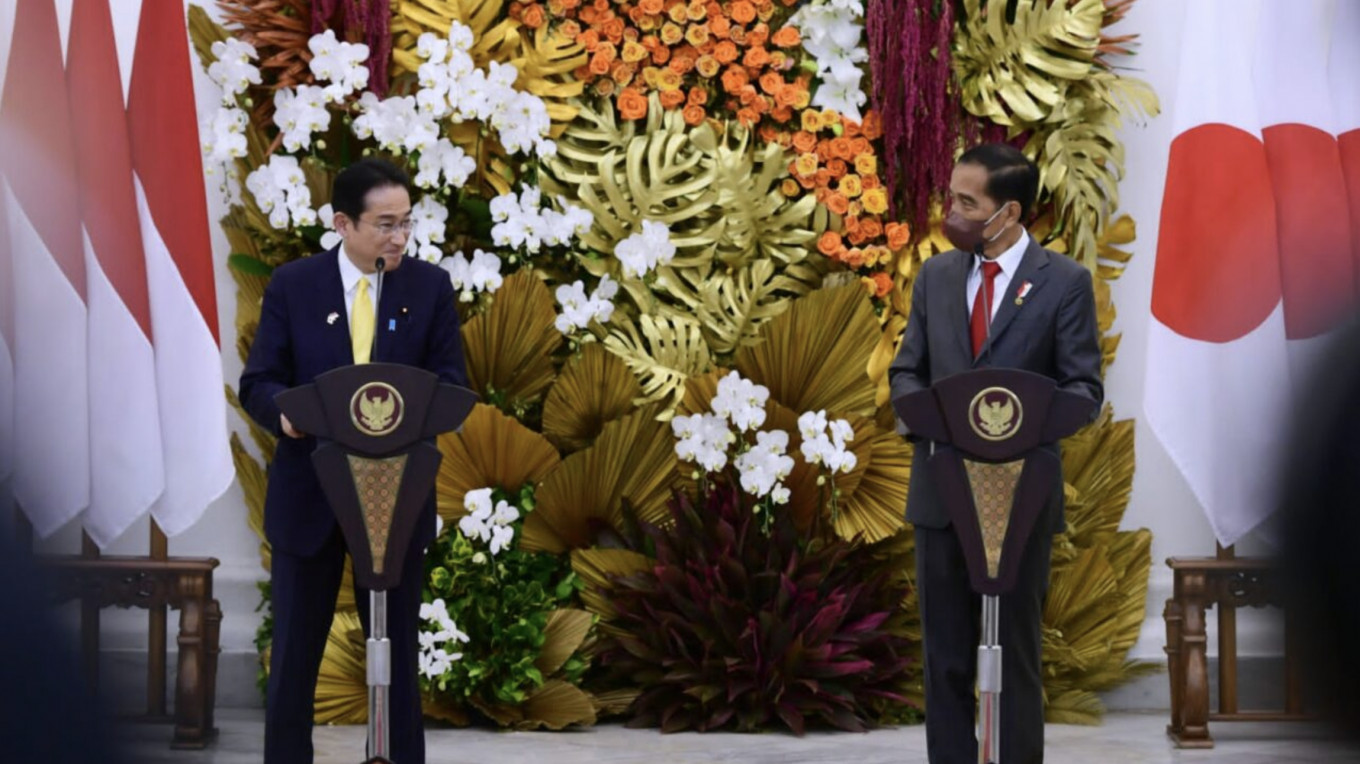Popular Reads
Top Results
Can't find what you're looking for?
View all search resultsPopular Reads
Top Results
Can't find what you're looking for?
View all search resultsA more powerful Kishida
Since assuming power in October last year, Kishida has outlined his plan to double Japan's military budget to about 2 percent of gross domestic product.
Change text size
Gift Premium Articles
to Anyone
T
he landslide victory of Japan's ruling Liberal Democratic Party (LDP) and its junior coalition partner Komeito in the country's Upper House election on Sunday will not only help Prime Minister Fumio Kishida maintain his grip until 2025 but also push his government closer to the historic amendment of a United States-drafted constitution.
The assassination of former prime minister Shinzo Abe, who fought for years to revise the 1945 Constitution, clearly played a decisive role in persuading voters to grant the LDP its much-needed win.
Japan is one of Indonesia’s most strategic foreign investment sources, trading companions and strategic partners in regional international affairs, so we can now feel more secure in dealing with the East Asian country.
China is currently Indonesia’s largest trading partner, but no one could deny the fact that it is the most trusted and credible source of development assistance.
As Kyodo put it, the election win will give Kishida a great opportunity to realize the late Abe’s revision ambition because now the ruling coalition controls more than two-thirds of the 248-seat Upper House. The government also enjoys a convincing majority in the Lower House. There will be no more elections until 2025 unless Kishida calls for a snap election.
The late Abe, Japan's most powerful politician until his death last week, had openly expressed his intention to revise Article 9 of the 1945 Constitution, which centers on the country's renunciation of war and only allows Japan to have a self-defense force. It clearly states that “the Japanese people forever renounce war as a sovereign right of the nation and the threat or use of force as means of settling international disputes”.
Kishida strongly supports Abe’s idea. Since assuming power in October last year, Kishida has outlined his plan to double the country's military budget to about 2 percent of gross domestic product (GDP) as practiced by many NATO members.
Under Kishida, Japan is moving closer to becoming a normal state in terms of military buildup. It is very unrealistic to demand that the country refrain from flexing its military muscles while close neighbors such as China and North and South Korea are building up their defense capacity. The ghost of Japan’s imperialism remains to haunt its former colonies, but after 77 years since its defeat in World War II, it does not make sense to expect Japan to maintain its status quo.
Sunday's election reflects the Japanese voters’ aspirations about their future. They want a stable government and trust Kishida to initiate constitutional reforms.











